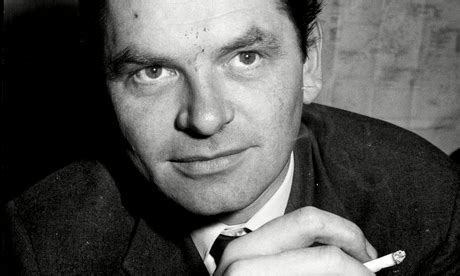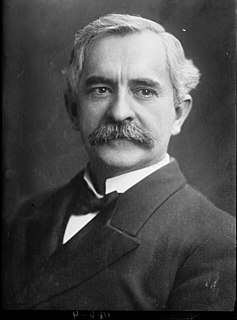A Quote by Friedrich Nietzsche
[Heraclitus had] the highest form of pride [stemming] from a certainty of belief in the truth as grasped by himself alone. He brings this form, by its excessive development, into a sublime pathos by involuntary identification of himself with his truth.
Related Quotes
The foundation of humility is truth. The humble man sees himself as he is. If his depreciation of himself were untrue,... it wouldnot be praiseworthy, and would be a form of hypocrisy, which is one of the evils of Pride. The man who is falsely humble, we know from our own experience, is one who is falsely proud.
When we think of God, we are apt to think of Him in human form. In the Epiphanies of the Old Testament God revealed Himself to Joshua and others in human form. He puts Himself within the compass of our highest conception, in order that He may make Himself real to us in His love and sympathy and power.
Toleration, holding that every other man has the same right to his opinion and faith that we have to ours; and liberality, holding that as no human being can with certainty say, in the clash and conflict of hostile faiths and creeds, what is truth, or that he is surely in possession of it, so everyone should feel that it is quite possible that another equally honest and sincere with himself, and yet holding the contrary opinion, may himself be in possession of the truth.
All religions have some truth in them, but none has the whole truth; all are created in time and finally decline and perish. Mahomed himself never pretended that the Koran was the last message of God and there would be no other. God and Truth outlast these religions and manifest themselves anew in whatever way or form the Divine Wisdom chooses.
Mathematics is a form of poetry which transcends poetry in that it proclaims a truth; a form of reasoning which transcends reasoning in that it wants to bring about the truth it proclaims; a form of action, of ritual behavior, which does not find fulfilment in the act but must proclaim and elaborate a poetic form of truth.
The cause of all the blunders committed by man arises from this excessive self-love. For the lover is blinded by the object loved; so that he passes a wrong judgment on what is just, good and beautiful, thinking that he ought always to honor what belongs to himself in preference to truth. For he who intends to be a great man ought to love neither himself nor his own things, but only what is just, whether it happens to be done by himself, or by another.
Although the Christian is thus free from all works, he ought in this liberty to empty himself, take upon himself the form of a servant, be made in the likeness of men, be found in human form, and to serve, help and in every way deal with his neighbor as he sees that God through Christ has dealt and still deals with him.
All those formal systems, in mathematics and physics and the philosophy of science, which claim to give foundations for certain truth are surely mistaken. I am tempted to say that we do not look for truth, but for knowledge. But I dislike this form of words, for two reasons. First of all, we do look for truth, however we define it, it is what we find that is knowledge. And second, what we fail to find is not truth, but certainty; the nature of truth is exactly the knowledge that we do find.





































